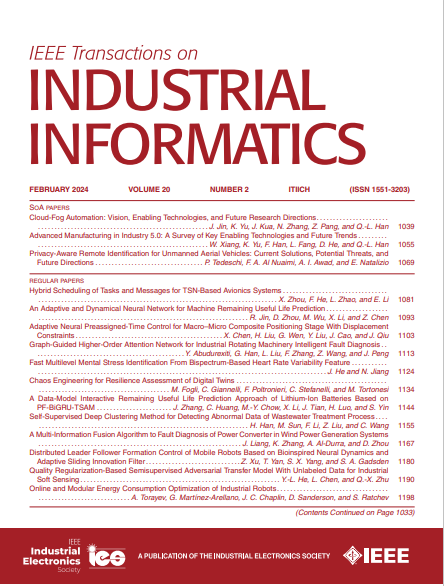基于机器学习的纳米粒子生成过程建模与监测控制理论
IF 9.9
1区 计算机科学
Q1 AUTOMATION & CONTROL SYSTEMS
引用次数: 0
摘要
纳米颗粒生成过程的建模、监测和控制在各种工业应用中至关重要,因为它们影响产品质量和工艺效率。虽然传统的第一原理建模是基础的,但由于不完整的知识和固有的简化,它经常不足。本文提出了一种利用控制理论通知机器学习来提高这些模型的准确性和可靠性的新方法。这种创新的方法在有不确定性和噪音的环境中特别有用,使其非常适合于纳米技术中的复杂过程。控制理论预知的结合和基于核的方法与神经网络的集成使设计的框架能够解决上述挑战。该方法在预测关键绩效指标量化相关产品参数方面显示出显著的改进。仿真结果验证了基于控制理论的机器学习框架的有效性,表明其有潜力成为纳米颗粒生成过程实时控制的鲁棒高效解决方案。本文章由计算机程序翻译,如有差异,请以英文原文为准。
A Control Theory Informed Machine Learning-Based Modeling and Monitoring of Nanoparticle Generation Processes
Modeling, monitoring and control of nanoparticle generation processes are of critical importance in various industrial applications due to their impact on product quality and process efficiency. While traditional first-principles modeling is foundational, it often falls short due to incomplete knowledge and inherent simplifications. This article presents a novel approach using control theory informed machine learning to enhance the accuracy and reliability of these models. This innovative method is particularly useful in environments with uncertainties and noise, making it well-suited for complex processes in nanotechnology. The incorporation of control-theoretic preknowledge and the integration of kernel-based methods with neural networks enables the designed framework to address the challenges described above. The approach demonstrates significant improvements in predicting key performance indicators quantifying the relevant product parameters. The simulation results validate the effectiveness of the control theory informed machine learning framework, indicating its potential to be a robust and efficient solution for real-time process control in nanoparticle generation.
求助全文
通过发布文献求助,成功后即可免费获取论文全文。
去求助
来源期刊

IEEE Transactions on Industrial Informatics
工程技术-工程:工业
CiteScore
24.10
自引率
8.90%
发文量
1202
审稿时长
5.1 months
期刊介绍:
The IEEE Transactions on Industrial Informatics is a multidisciplinary journal dedicated to publishing technical papers that connect theory with practical applications of informatics in industrial settings. It focuses on the utilization of information in intelligent, distributed, and agile industrial automation and control systems. The scope includes topics such as knowledge-based and AI-enhanced automation, intelligent computer control systems, flexible and collaborative manufacturing, industrial informatics in software-defined vehicles and robotics, computer vision, industrial cyber-physical and industrial IoT systems, real-time and networked embedded systems, security in industrial processes, industrial communications, systems interoperability, and human-machine interaction.
 求助内容:
求助内容: 应助结果提醒方式:
应助结果提醒方式:


